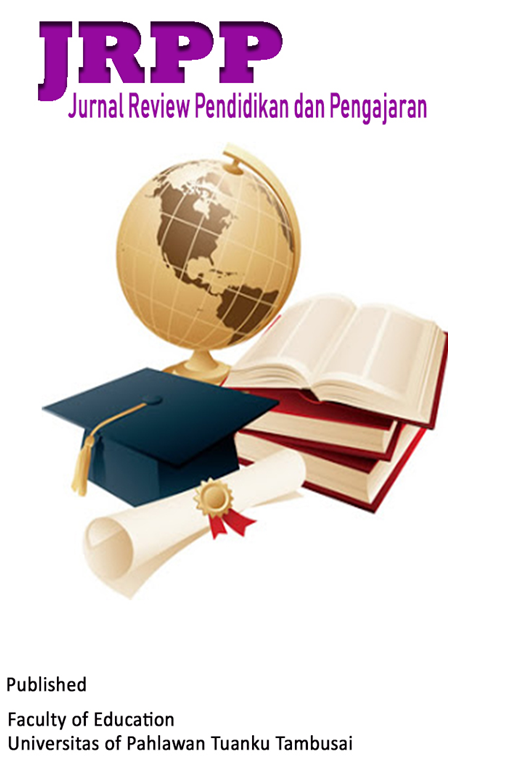OPTIMALISASI SELF LEADERSHIP IBU MENYUSUI DALAM MEMBERIKAN ASI EKSKLUSIF
DOI:
https://doi.org/10.31004/cdj.v4i3.17646Keywords:
Self leadership, ASI eksklusifAbstract
Fenomena yang ada menunjukkan bahwa masih banyak ibu yang tidak memberikan ASI eksklusif. Kemampuan ibu dalam memimpin dirinya sendiri (Self leadership) mempunyai peran penting terhadap paradigma dan modal psikis ibu (Psychologycal capital) dalam berperilaku. Pengabdian masyarakat yang dilajkan dengan melakukan edukasi guna mengoptimalkan self leadership ibu menyusui ini meningkatkan pengetahuan dan kekeuatan ibu dalam memberikan ASI eksklusif serta bagi kader kesehatan agar bisa selalu memotivasi ibu. Metode yang digunakan dalam kegiatan pengabdian masyarakat ini adalah dengan memberikan penyuluhan Kesehatan tentang pentingnya self leadership ibu menyusui. Kegiatan ini dilaksanakan selama satu bulan dan diikuti oleh 22 ibu menyusui dan kader kesehatan. Sebelum diberikan edukasi, dilakukan pre test dan post test mengenai self leadership dan ASI eksklusif. Didapatkan sebagian besar 77% ibu menyusui dan kader memiliki tingkat pengetahuan dan self leadership yang baik setelah dilakukan edukasi. Seorang Ibu menyusui yang mampu memimpin dan memotivasi dirinya secara terus menerus untuk menyusui bayinya secara on demand sejak bayi lahir hingga usia 6 bulan tanpa memberikan makanan dan minuman tambahan apapun akan berhasil memberikan ASI eksklusif.References
Kemendikbud, World Health Organization, & UNICEF. (2019). Modul Pendidikan Keluarga pada 1000 Hari Pertama Kehidupan (HPK). Discussion Paper, 12. Retrieved from https://www.who.int/nutrition/global-target-2025/discussion-paper-extension-targets-2030.pdf?ua=1
Kemenkes, R. (2018). Laporan Nasional RISKESDAS 2018. In Badan Penelitian dan Pengembangan Kesehatan. https://doi.org/10.1017/CBO9781107415324.004
Arifin, S., Suhariadi, F., & Damayanti, N. A. (2018). The influence of leadership style of midwife coordinator toward the performance of village midwives on antenatal care through the job involvement. Indian Journal of Public Health Research and Development, 9(1), 249–252. https://doi.org/10.5958/0976-5506.2018.00046.3
Yu, S., & Ko, Y. K. (2017). Communication competency as a mediator in the self-leadership to job performance relationship. Collegian, 24(5), 421–425. https://doi.org/10.1016/j.colegn.2016.09.002
Scott, J. A., Binns, C. W., Oddy, W. H., & Graham, K. I. (2006). Predictors of breastfeeding duration: Evidence from a cohort study. Pediatrics, 117(4). https://doi.org/10.1542/peds.2005-1991
Dias, C. C., & Figueiredo, B. (2015). Breastfeeding and depression: A systematic review of the literature. Journal of Affective Disorders, 171, 142–154. https://doi.org/10.1016/j.jad.2014.09.022
Ismail, T. A. T., Muda, W. A. M. W., & Bakar, M. I. (2016). The extended theory of planned behavior in explaining exclusive breastfeeding intention and behavior among women in Kelantan, Malaysia. Nutrition Research and Practice, 10(1), 49–55. https://doi.org/10.4162/nrp.2016.10.1.49
Senghore, T., Omotosho, T. A., Ceesay, O., & Williams, D. C. H. (2018). Predictors of exclusive breastfeeding knowledge and intention to or practice of exclusive breastfeeding among antenatal and postnatal women receiving routine care: A cross-sectional study. International Breastfeeding Journal, 13(1), 1–8. https://doi.org/10.1186/s13006-018-0154-0
Bajoulvand, R., González-Jiménez, E., Imani-Nasab, M. H., & Ebrahimzadeh, F. (2019). Predicting exclusive breastfeeding among iranian mothers: Application of the theory of planned behavior using structural equation modeling. Iranian Journal of Nursing and Midwifery Research, 24(5), 323–329. https://doi.org/10.4103/ijnmr.IJNMR_164_18
Manz, C. C. (1986). Self-Leadership: Toward an Expanded Theory of Self-Influence Processes in Organizations. Academy of Management Review, Vol 11, No, 585–600.
Jeffery, D., & Christopher, P. (2012). The revised self-leadership questionnaire: Testing a hierarchical factor structure for self-leadership. Journal of Managerial Psychology, Vol. 17, pp. 672–691
Bayansalduz, M., Afyon, Y. A., Kepoglu, A., Dalli, M., & Mulazimoglu, O. (2014). Examination of Self-leadership Characteristics of Football Coaches. Procedia - Social and Behavioral Sciences, 152, 500–502. https://doi.org/10.1016/j.sbspro.2014.09.191
Neck, C. P., & Houghton, J. D. (2006). Two decades of self-leadership theory and research: Past developments, present trends, and future possibilities. Journal of Managerial Psychology, 21(4), 270–295. https://doi.org/10.1108/02683940610663097
Downloads
Published
How to Cite
Issue
Section
License
Copyright (c) 2023 Fauziyatun Nisa

This work is licensed under a Creative Commons Attribution-ShareAlike 4.0 International License.















